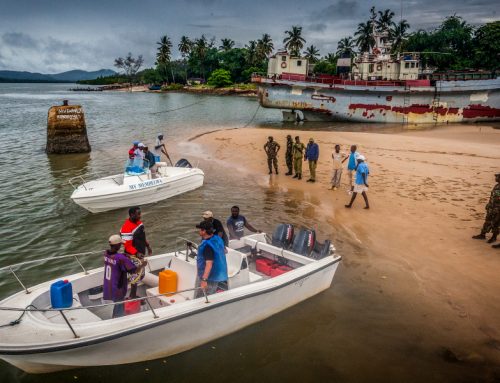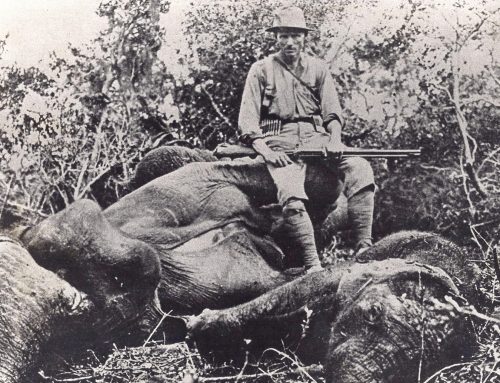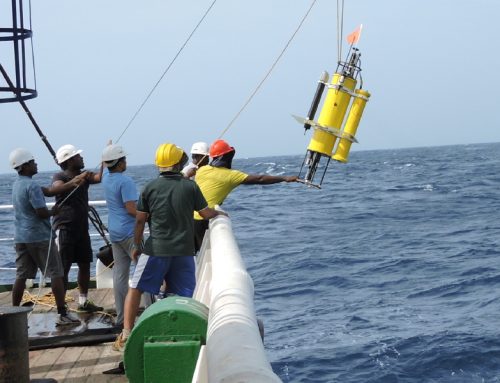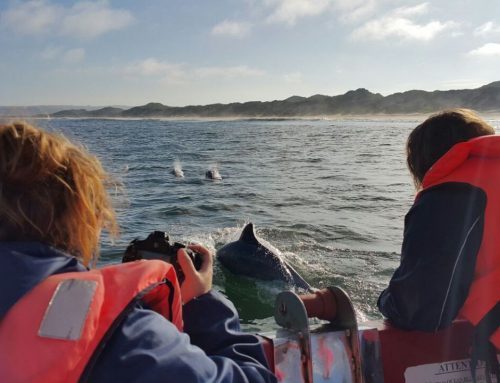 On a cold winter’s day in May, Dougie Stern and Lukie Strydom met in the lapa at Dougie’s livestock farm between Graaff-Reinet and Middelburg. Over coffee and rusks they discussed the final itinerary of their two-week fact finding mission to the United States from 17 June – 4 July where they will intensively investigate shale gas fracking.
On a cold winter’s day in May, Dougie Stern and Lukie Strydom met in the lapa at Dougie’s livestock farm between Graaff-Reinet and Middelburg. Over coffee and rusks they discussed the final itinerary of their two-week fact finding mission to the United States from 17 June – 4 July where they will intensively investigate shale gas fracking.
“You cannot even begin to understand the problems they are facing over there as a result of widespread shale gas fracking in several states,” says Stern (62). “Ahead of our trip we have had many telephone discussions with a wide range of people in the United States, from farmers to business people to lawyers to vets. The warning from all of them is that once those gas and oil boytjies sink the first well, it’s too late. It will destroy our lives.”
“We are in the fortunate position to be responding proactively in South Africa, instead of reactively as they are having to do in the United States and several other first world countries such as France which banned shale gas fracking in May,” adds Strydom (50), a livestock farmer from the Middelburg district with a strong business background.
“Our government is in a position to make the right decision about fracking and has shown itself to be more proactive than any first world government in this respect by imposing the moratorium on shale gas fracking. We need to use this opportunity to thoroughly research the facts on the ground in countries with experience of shale gas fracking and we have requested to share our findings with the Minister of Mineral Resources, Susan Shabangu.”
Attending the meeting in Stern’s lapa were two managers from BKB, one of the largest co-ops in South Africa with a strong presence in the Karoo, which is sponsoring the United States mission.
BKB manager Jacques Hendrikse (Graaff-Reinet) and Rynhardt van der Riet (Middelburg) represented BKB Managing Director, Wolf Edmayr, at the meeting.
“We are extremely concerned about the applications to explore or frack for shale gas in the Karoo as the farmers are customers of ours and we are 100% behind them,” said Edmayr. “There isn’t anything approximating sufficient research and knowledge about the shale gas fracking process, which is why BKB has financially committed to this United States mission to gather as much information as possible.”
Stern and Strydom are also collaborating with the mayors of Graaff-Reinet, Cradock and Middelburg to gather information about the impact of shale gas fracking for all the Karoo towns and communities.
It is a wonderful teaming up of farmers, farming business and communities.
While the focus of shale gas fracking has been on the Karoo, it poses a similar risk to many other farming areas and towns in South Africa, such as De Doorns in the Western Cape where wine and grape farmers have asked Stern and Strydom to investigate what is happening in the United States on their behalf.
“Falcon Gas & Oil has set its sights on shale gas exploration in the Ceres region. They say they would only be conducting seismic testing in the exploration phase, but ultimately they would have to frack,” explains Stern. “The De Doorns farmers are naturally very concerned because their water comes from the Cederberg mountain range that could be at risk of contamination through fracking, and which could destroy the farmers, particularly their export market.”
As part of Stern and Strydom’s itinerary, they will be going to the Finger Lakes district, which is the state of New York’s largest wine producing area with over 100 wineries and vineyards. They visiting Sheldrake Point Vineyards and speaking to wine farmers affected by shale gas fracking in that district, in order to report back to the South African wine and grape farmers.
The trip will highlight South African farming in general in the United States as Stern and Strydom have been asked to be guest speakers at what promises to be the largest anti-fracking event ever held, called THE EPIC NO FRACK EVENT. It is being held in Ithaca in upstate New York on 25 June.
Armed with images of the South African landscape they will address the gathering of what could be thousands of people, and show them images of the Karoo and South Africa’s agricultural landscape.
“The Epic No Frack Event is all about expressing the will of the people, which is what the anti-fracking movement in South Africa is about,” explains Strydom. “They, like us, will no longer be imposed on without the right of refusal by giant corporates like Shell, and our government must understand this and support this.”
Their two-week itinerary could not be more intensive. The two farmers, accompanied by Graaff-Reinet video journalist, Jolynn Minnaar, will leave no stone unturned, and will film and photograph it all. “We are hoping to put together roadshows on our return so that we can share with as many South Africans as possible what we have seen and learnt,” says Stern.
“Few people in the rural areas targeted with fracking can afford to see how it has affected the people and the environment in the United States. Thanks to BKB we are being given this opportunity to be the eyes and ears for everyone.”
The two farmers were selected to head the fact-finding mission, having proved their commitment to conserving the Karoo and its agricultural economy in the fight against the exploration applications submitted by Shell, Falcon, Bundu and other oil and gas companies. Intelligent, passionate and thorough, they are the perfect pair to pursue the task.
As a member of Agri Eastern Cape, Stern has been a driving force in securing support from Agri Eastern Cape for the legal opposition to shale gas fracking in the Karoo, led by Graaff-Reinet attorney, Derek Light who represents hundreds of Interested & Affected Parties (I&APs) in the Karoo, including farmers, landowners, community members and conservation organisations.
Strydom has tirelessly worked towards raising awareness about the dangers of shale gas fracking and approached businesses like BKB that depend on the farming community, for support.
Their itinerary includes:
- Meeting with veterinarians at Cornell University’s world-renowned College of Veterinary Medicine. These vets have been researching the effects of the contaminants in shale gas fracking on animal performance and production.
- Getting the full facts on the impact of shale gas fracking on affected communities in states like Pennsylvania Arkansas in the United States. Shell has already stated that unskilled jobs in the exploration phase would be few and far between but promise thousands of unskilled jobs in the production phase. Stern and Strydom will be investigating the minimum skills qualifications required on gas wells, as well as the business impact on towns to determine into whose hands the money from gas production actually goes. They will be speaking to two former Mobil oil executives who left the industry because of the iniquities of the process, as well as with the Chamber of Commerce in Cooperstown in the gas belt.
- Tours of well pads in Pennsylvania and Arkansas where there is extensive fracking activity.
- An interview with scientist Dr Earl Robinson about the impact of shale gas chemicals, fugitive gases and production waste on communities.
- Interviews with farmers such as Ron Gulla who lost his land through shale gas fracking and with Colorado cowboy Rich Roles whose ranch was destroyed through the plummeting land price as a result of shale gas fracking.
- Guided tours of Hickory in North Carolina to view the industrialization of the rural areas. Minister Shabangu has expressed her concern for the rural regions and communities and Stern and Strydom want to support her by getting clarity on the impact of shale gas fracking on communities and the agricultural environment in direct terms and in terms of the total carbon footprint.
- Investigation of decommissioned wells and the impact on the environment and communities once the companies have packed up and left after an average of 5-15 years of fracking.
“It is very important to assess what we have and what we stand to lose,” says Stern. “For example, the Department of Agriculture’s statistics for 2011 for the Eastern Cape alone show that an average of 30% of all livestock in South Africa are in this province. That amounts to over 20 million animals in total. This accounts for a considerable input into the South African economy in terms of meat, fibre and employment.
The Eastern Cape, Western Cape and Northern Cape are currently targets for shale gas fracking.
Given the high livestock numbers, the impact on the Karoo is potentially devastating, yet Shell only discusses impact in terms of the number of people, and neglects to address the impact on the number of livestock or wildlife.
Apart from very real risk of water contamination to livestock, Stern and Strydom discuss the impact of the established average of 1100 trucks servicing each fracking operation. On a 3000-hectare farm you could have 100 vertical wells, each with an average of 12 horizontal wells. You’re talking millions of truck trips on dusty farm road. The dust on the vegetation alone would mean the animals would simply not eat the bushes and grasses.
“We will return to South Africa with the facts about the bigger picture of shale gas fracking, including all the issues that could affect us and which we need to know and share, especially since there are no regulations or guidelines for shale gas fracking in South Africa,” says Strydom.
“So far our research has shown that there is nothing ‘natural’ about shale gas, even though the oil and gas companies wrongfully refer to it as a cleaner, natural gas. If it is so natural and environmentally safe then why are the oil and gas companies paying millions of dollars in settlements and fines?” asks Stern, adding that what they want to find out from the people of America is what they would do or would have done differently if they were in South Africa’s position where shale gas fracking has not taken hold.
Stern and Strydom encourage all South Africans who would like them to ask questions on their behalf to contact them ahead of their trip.




